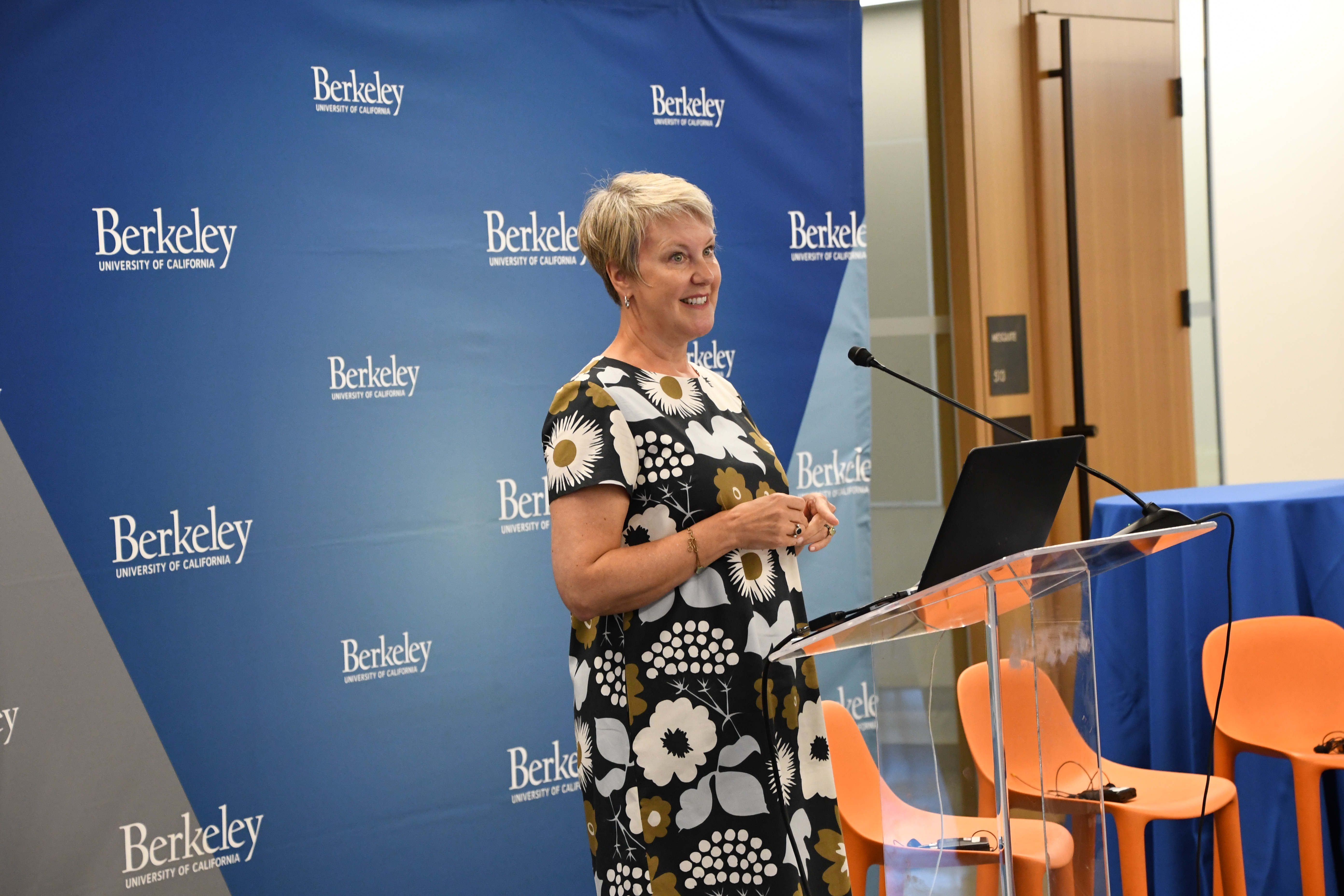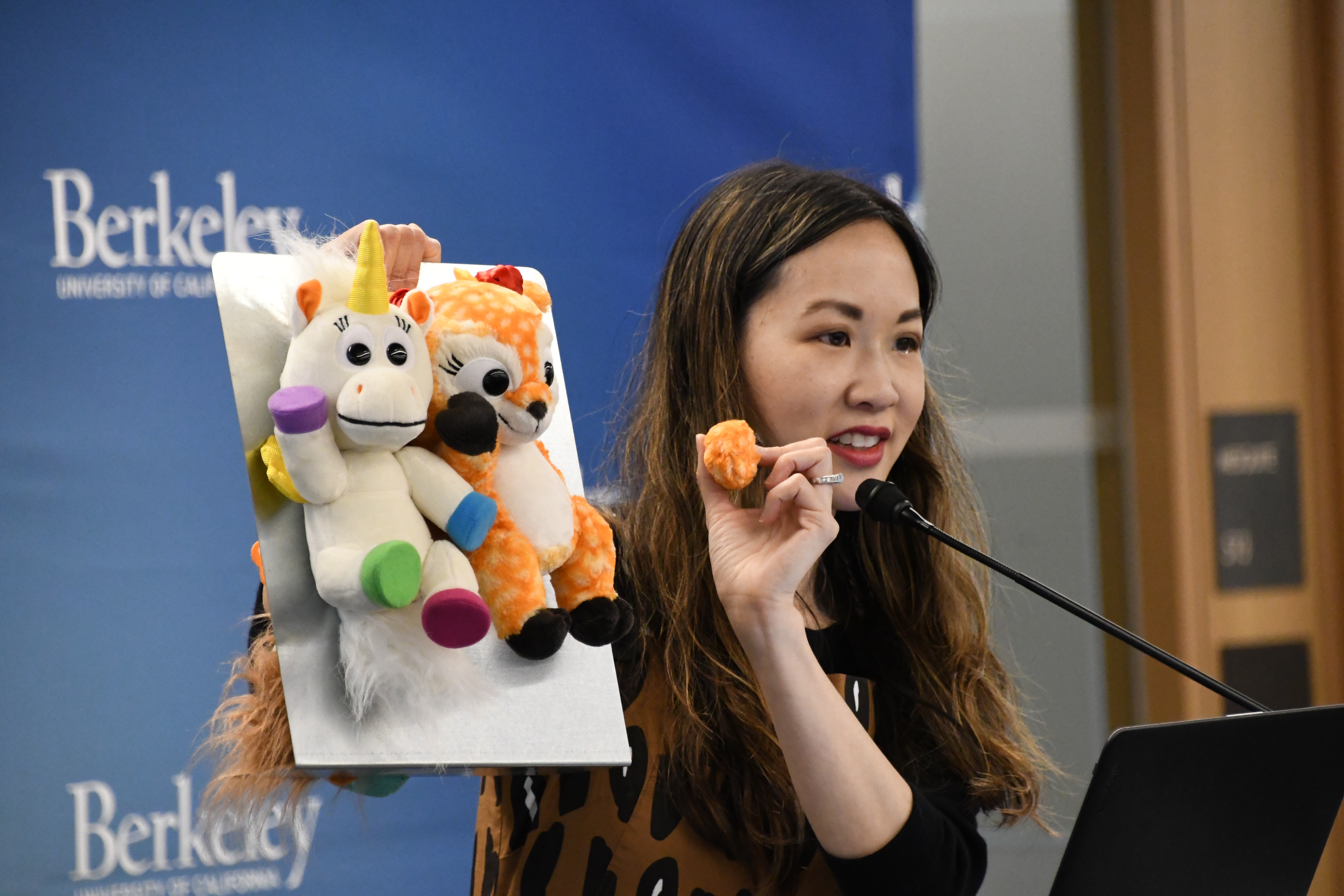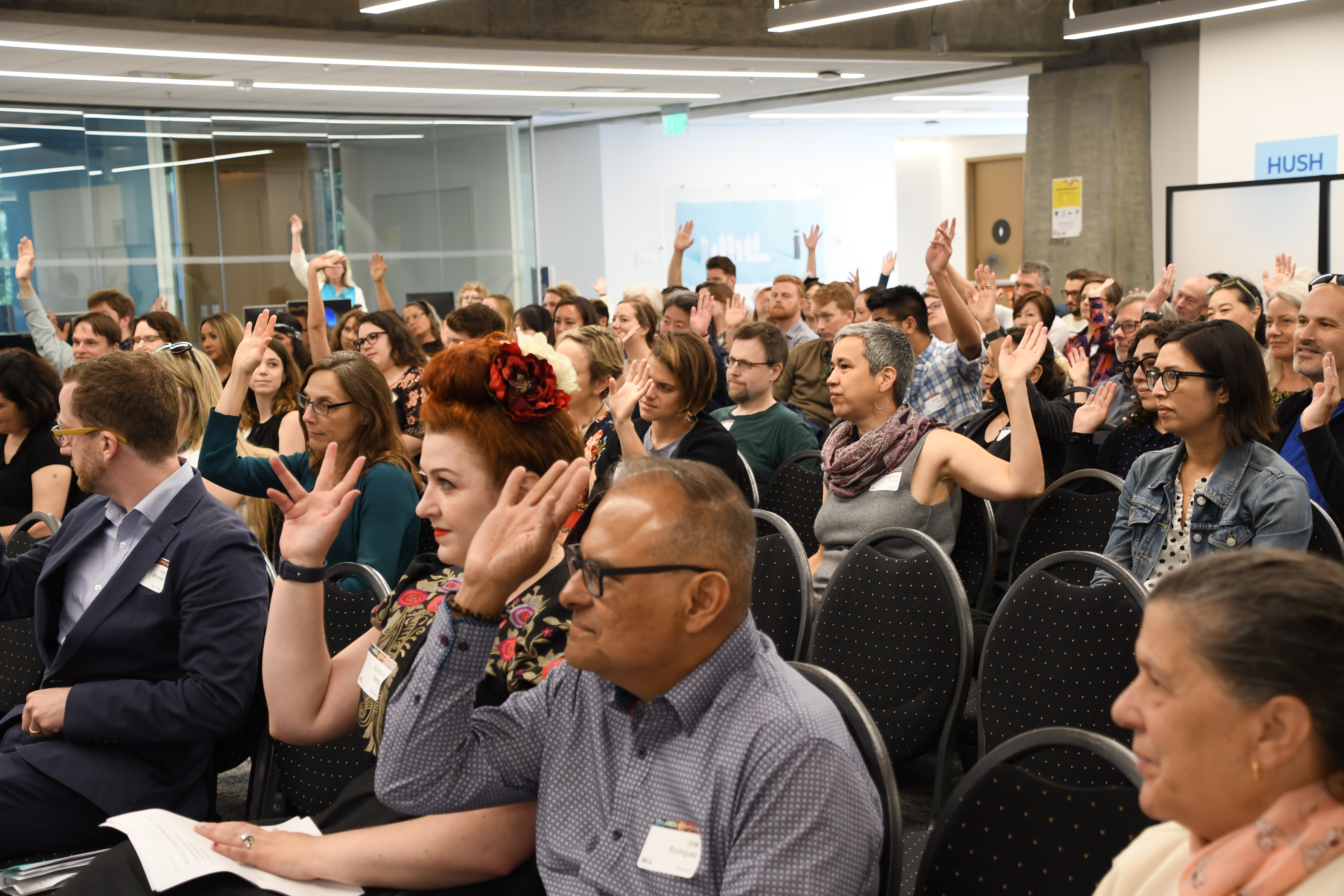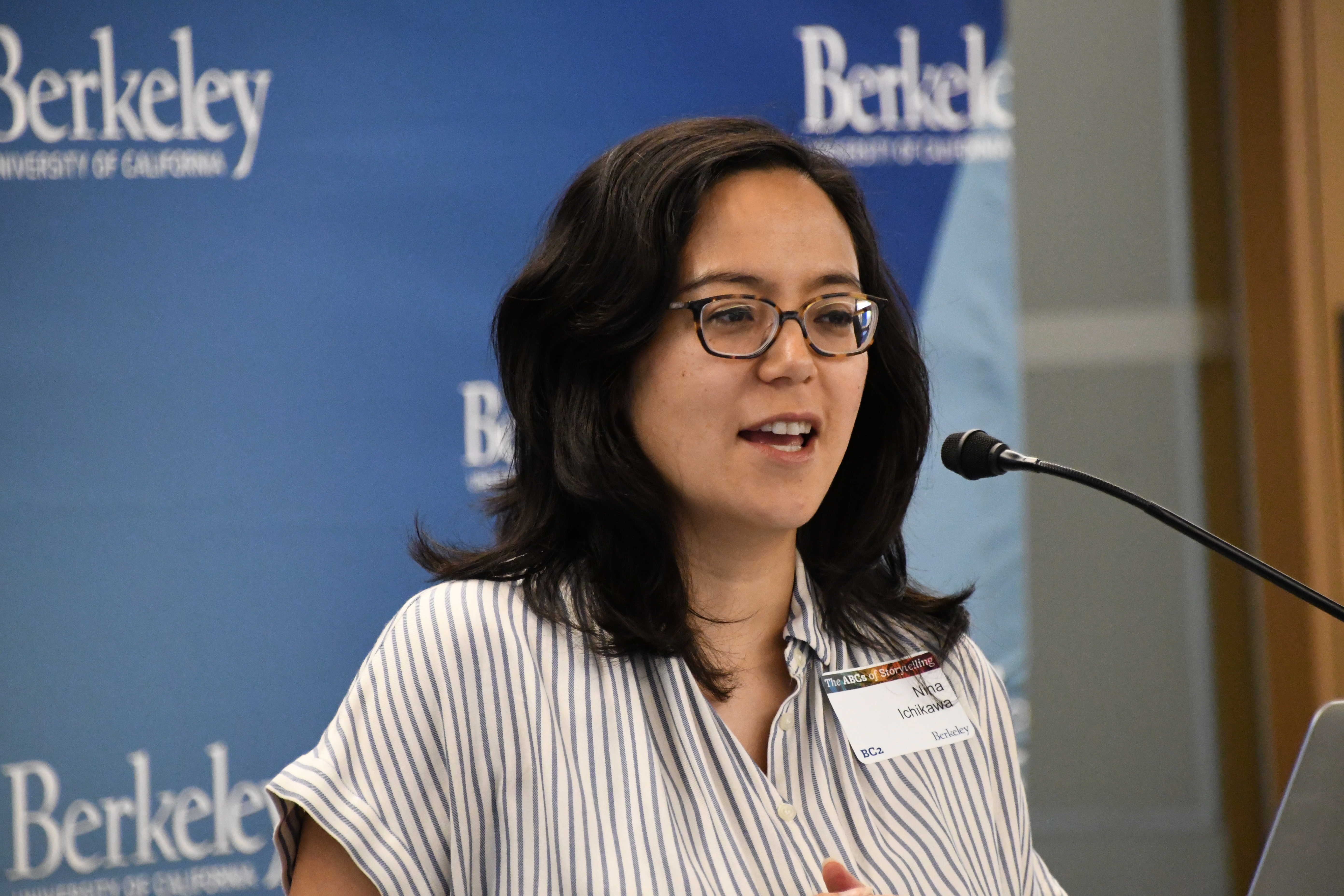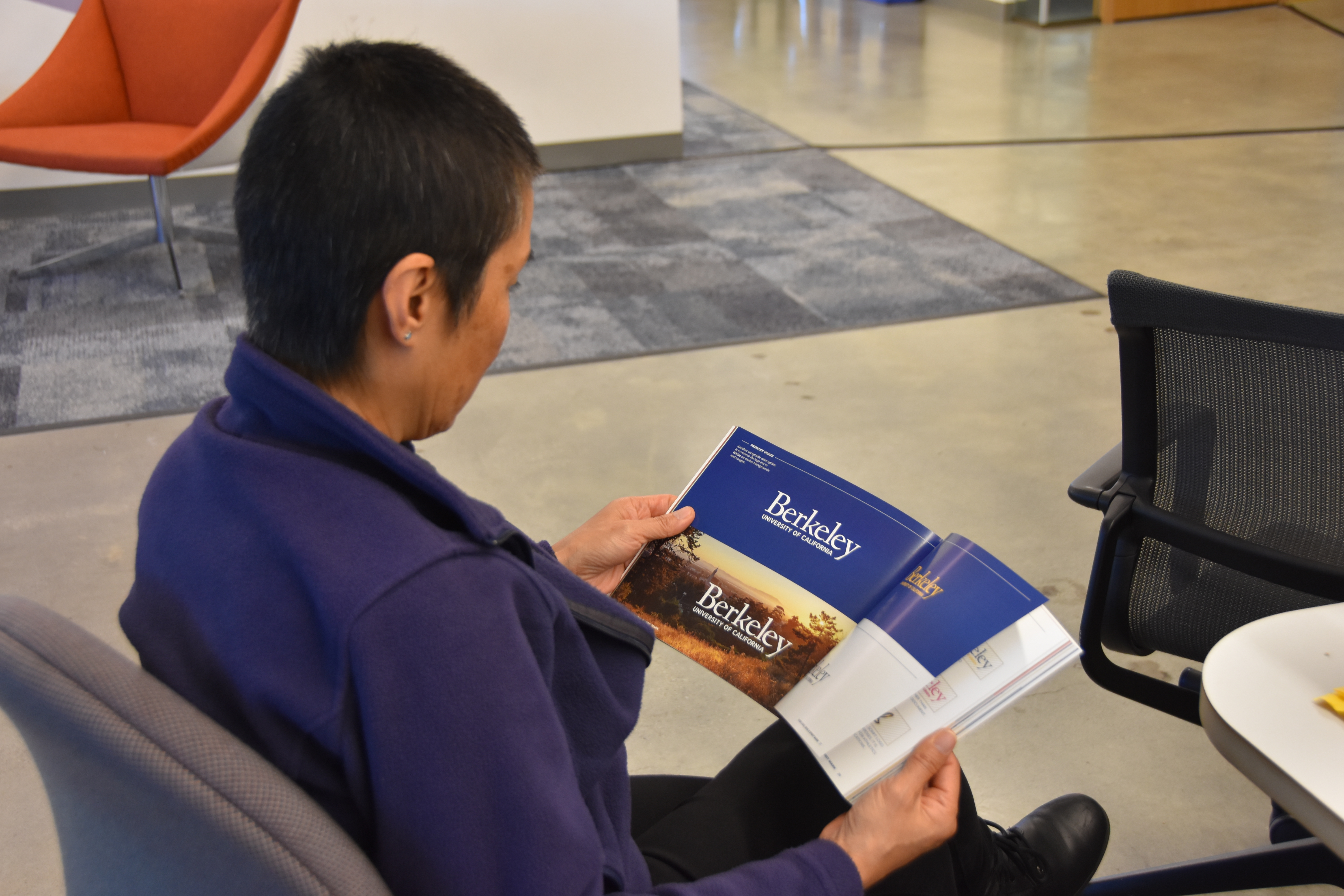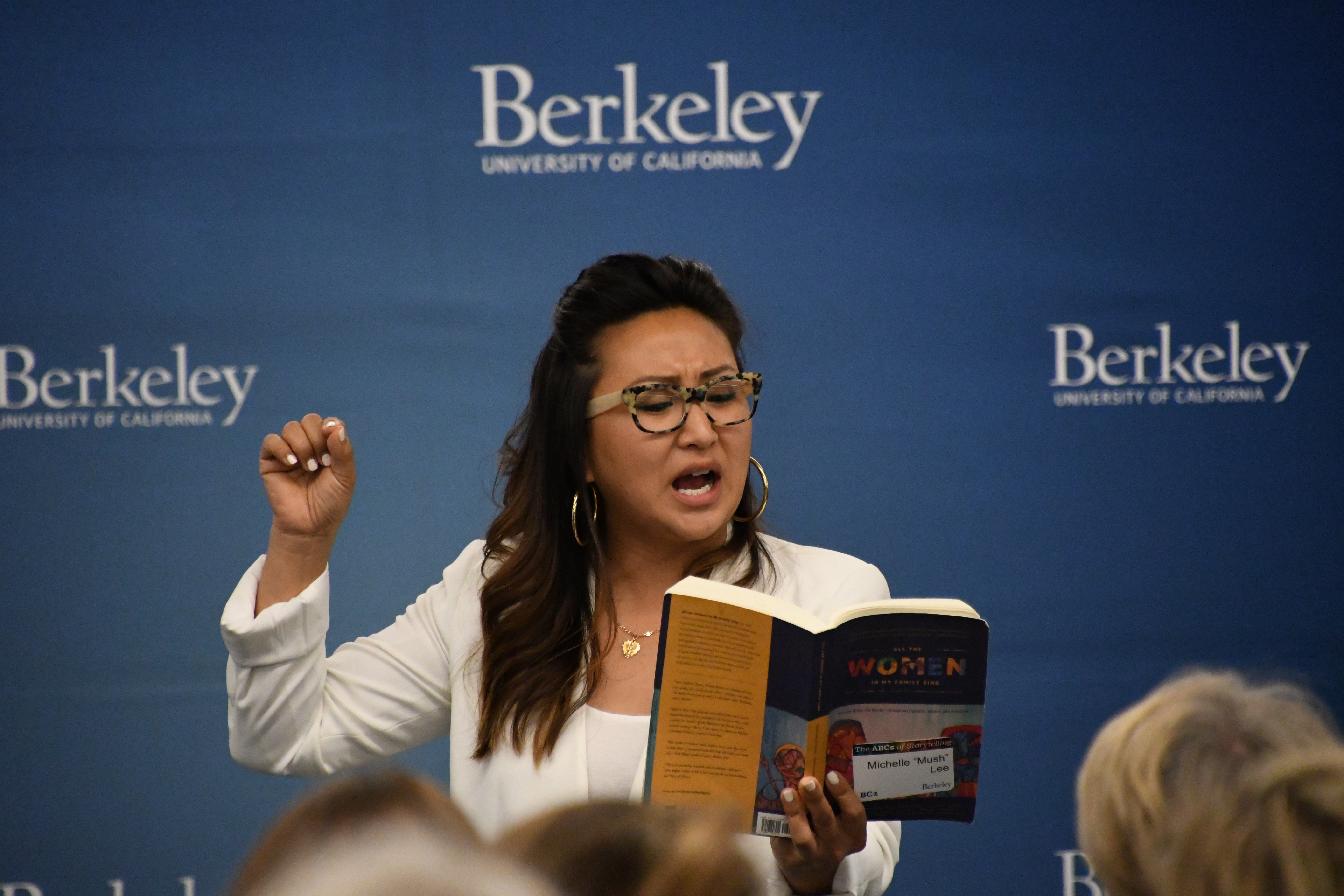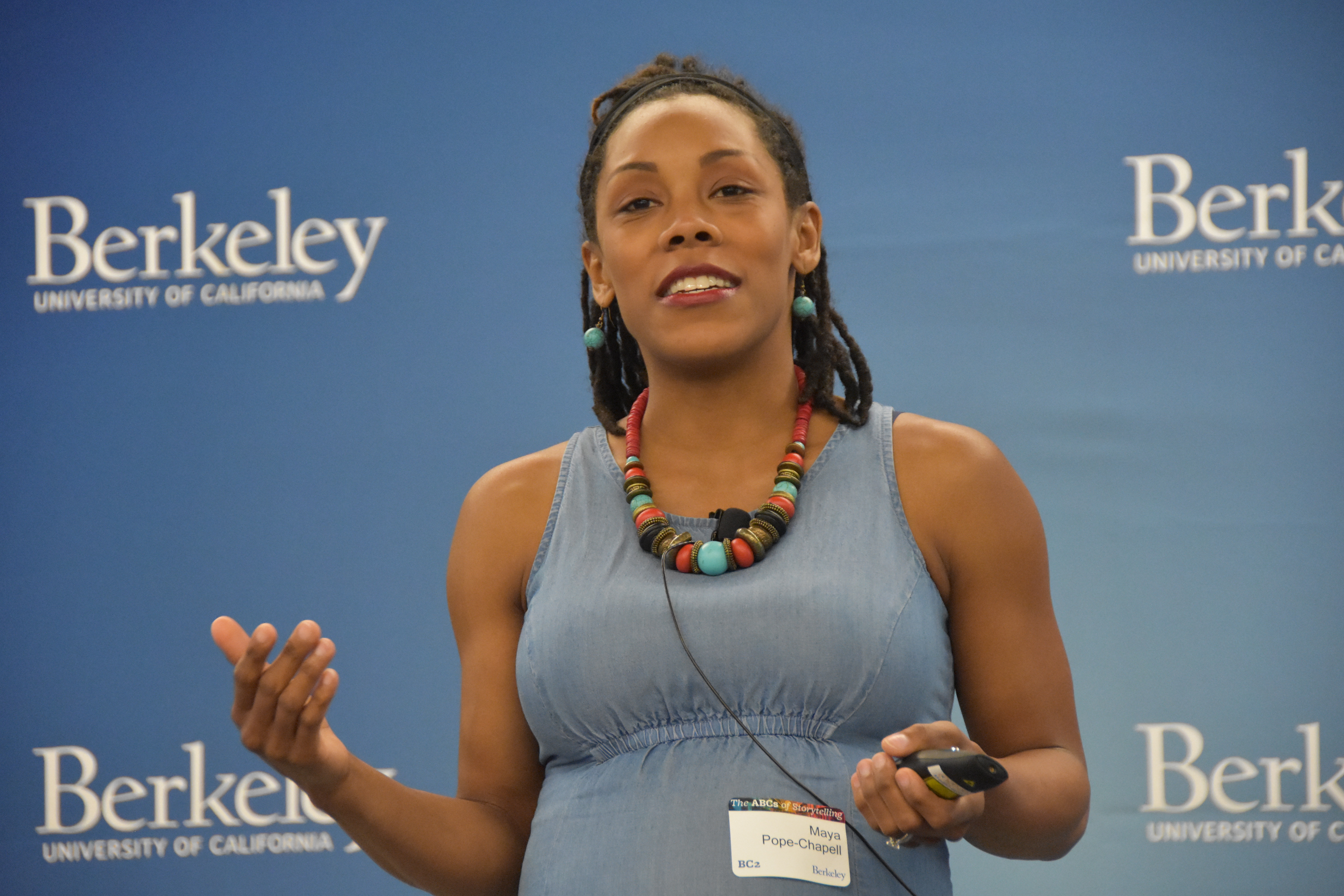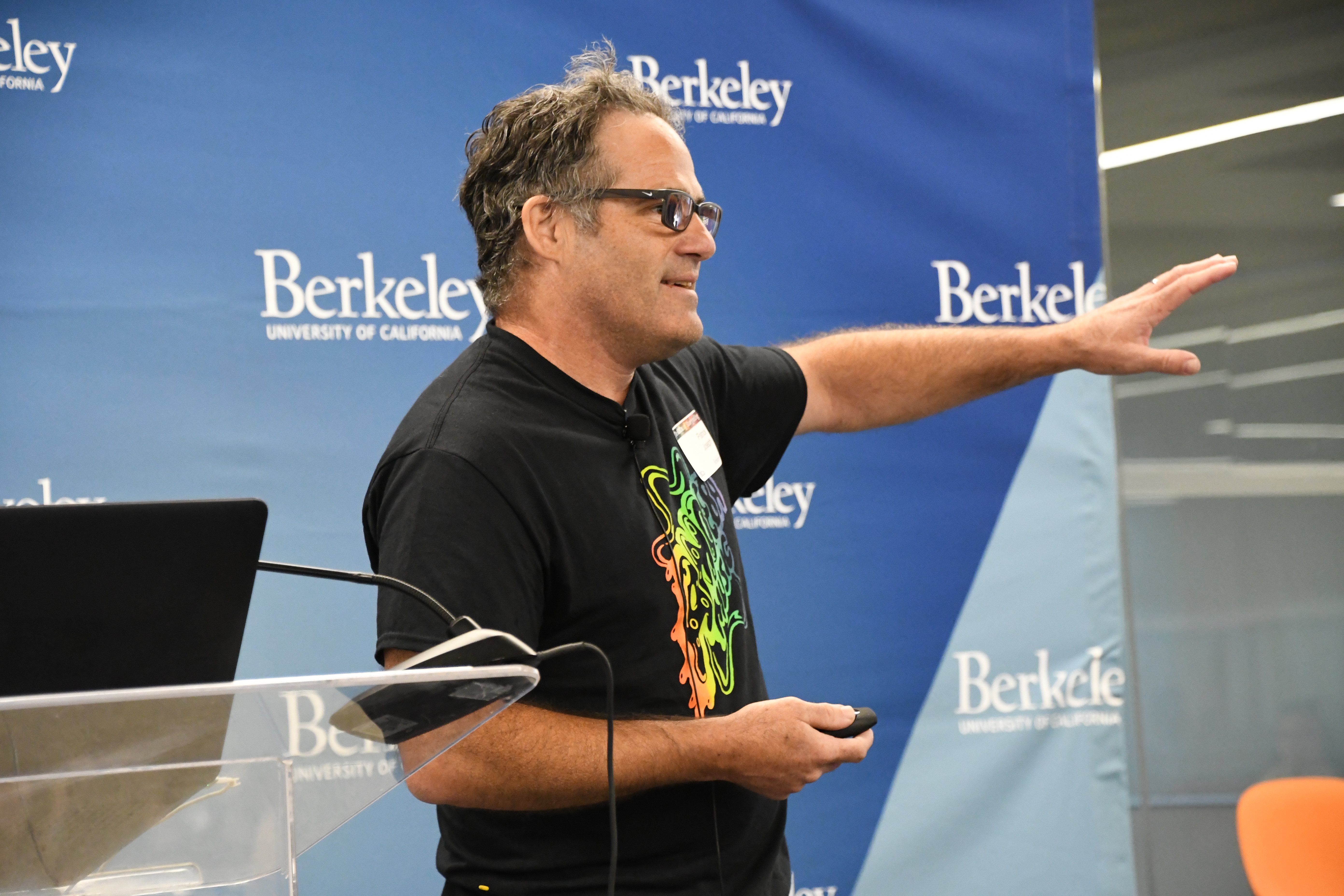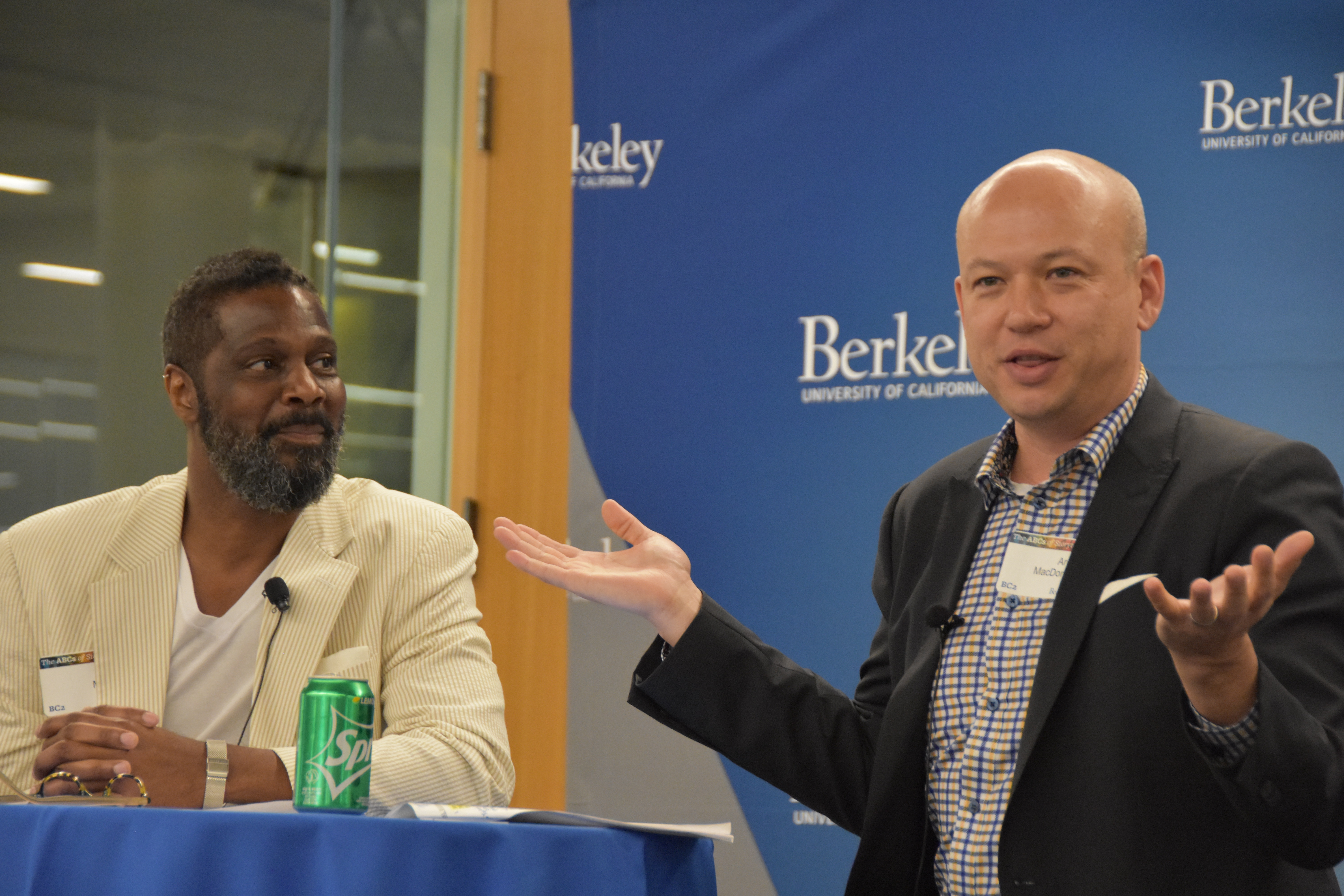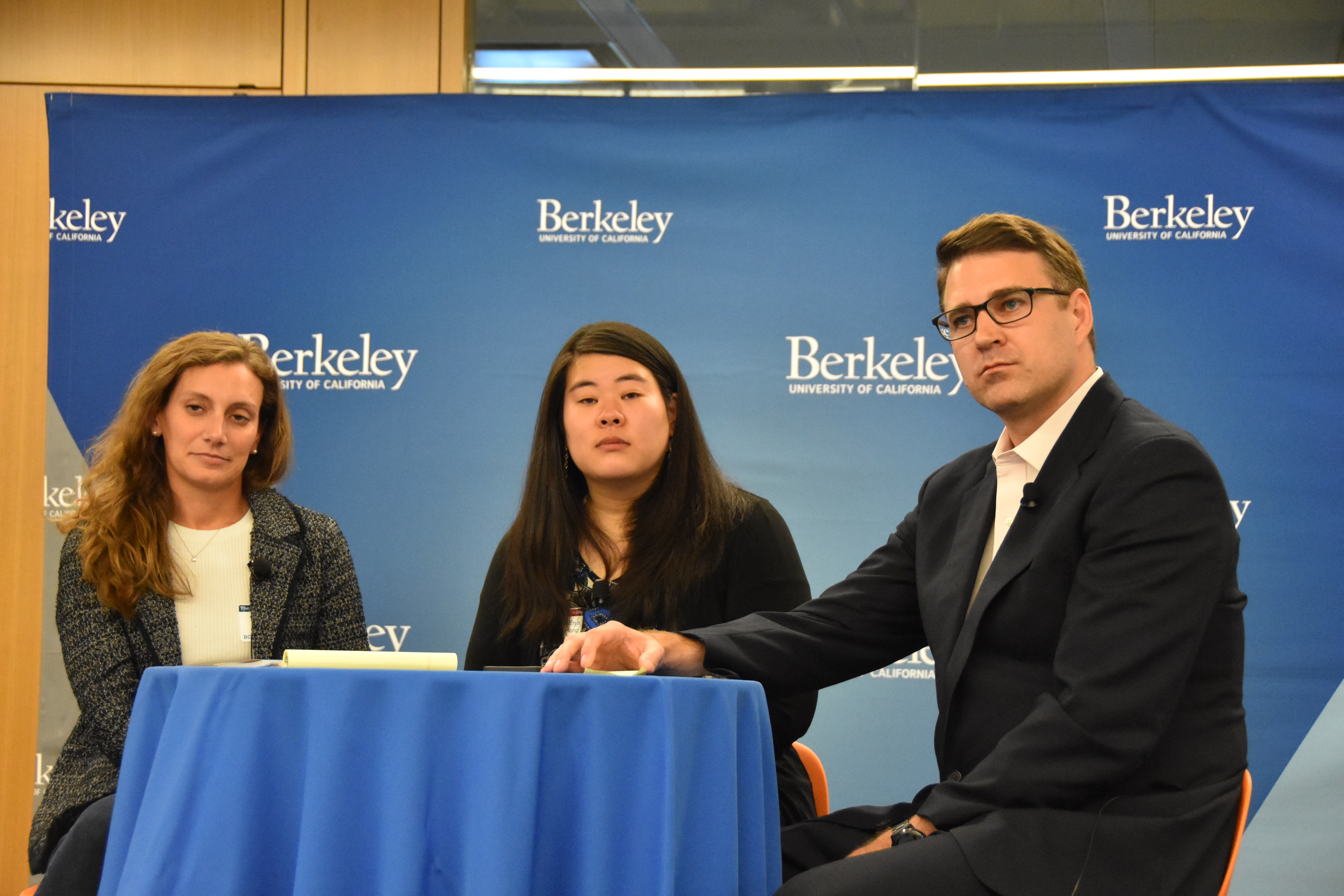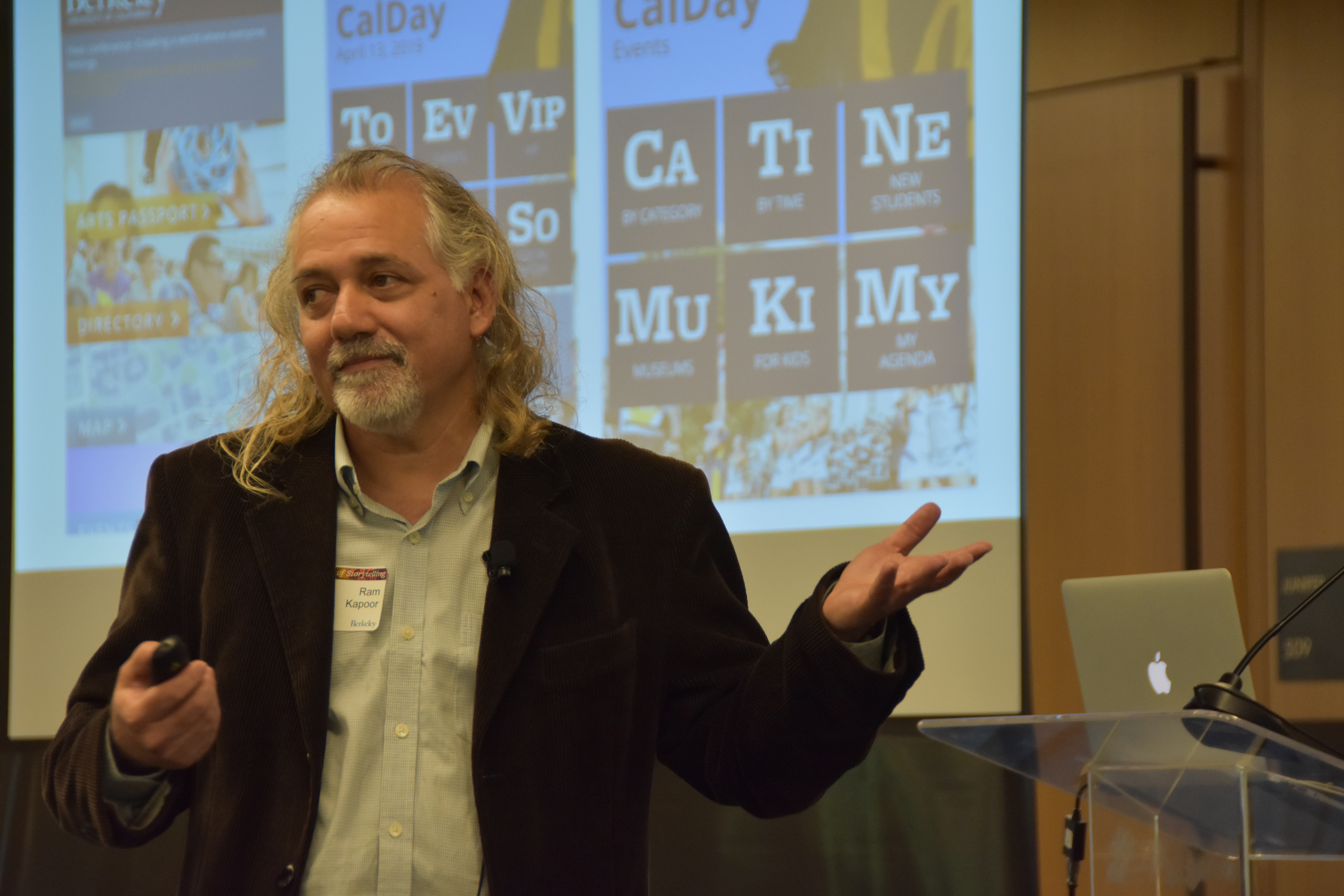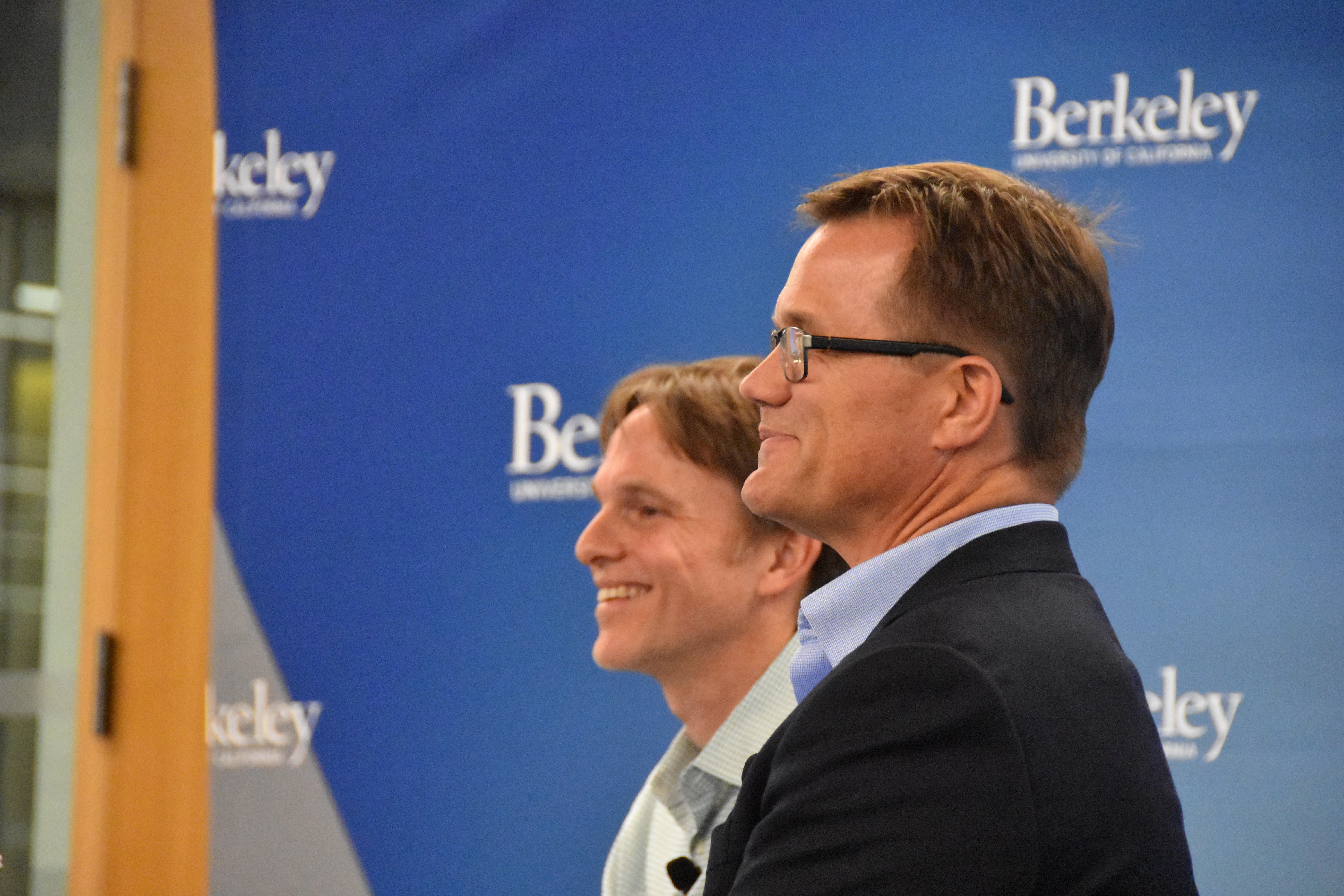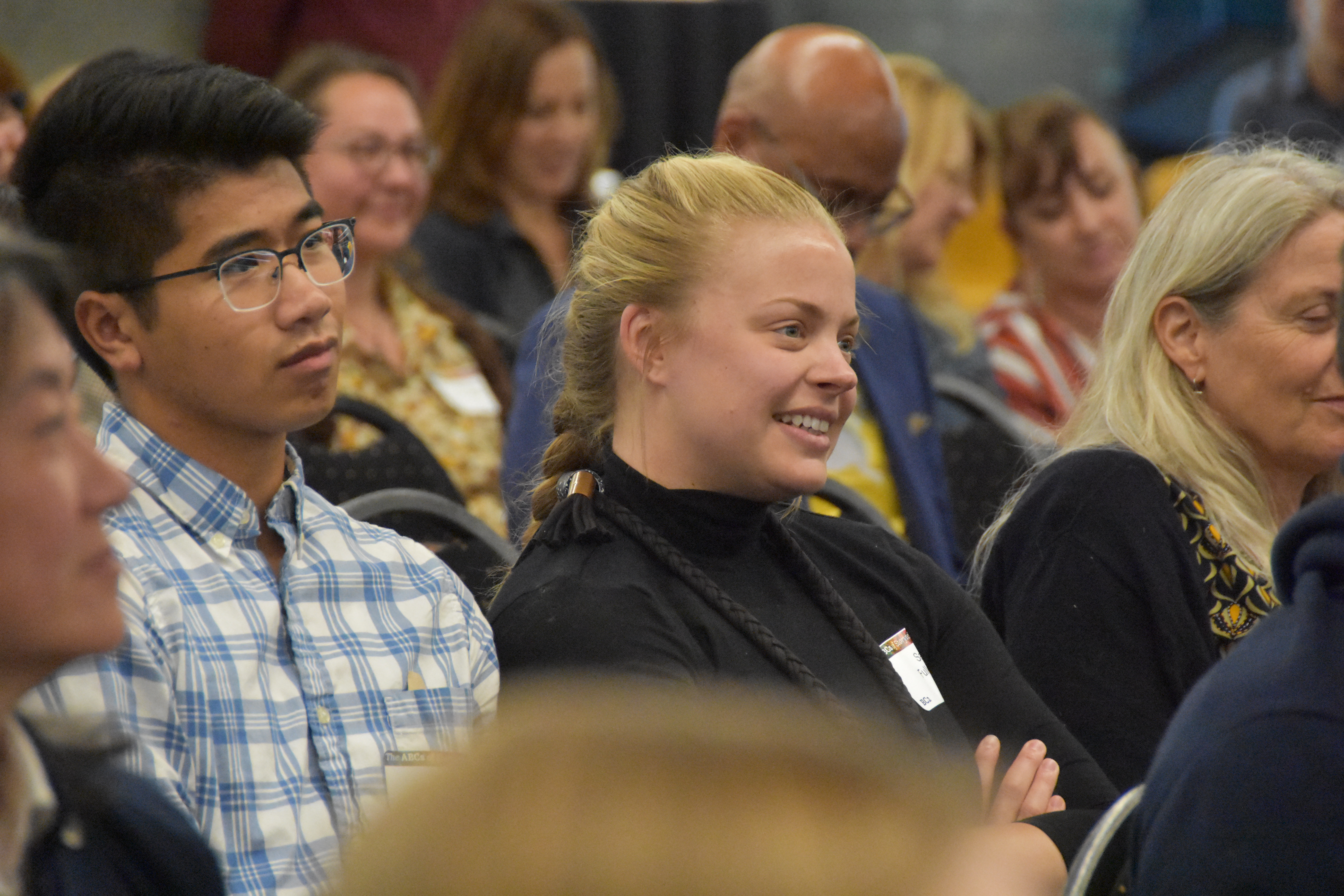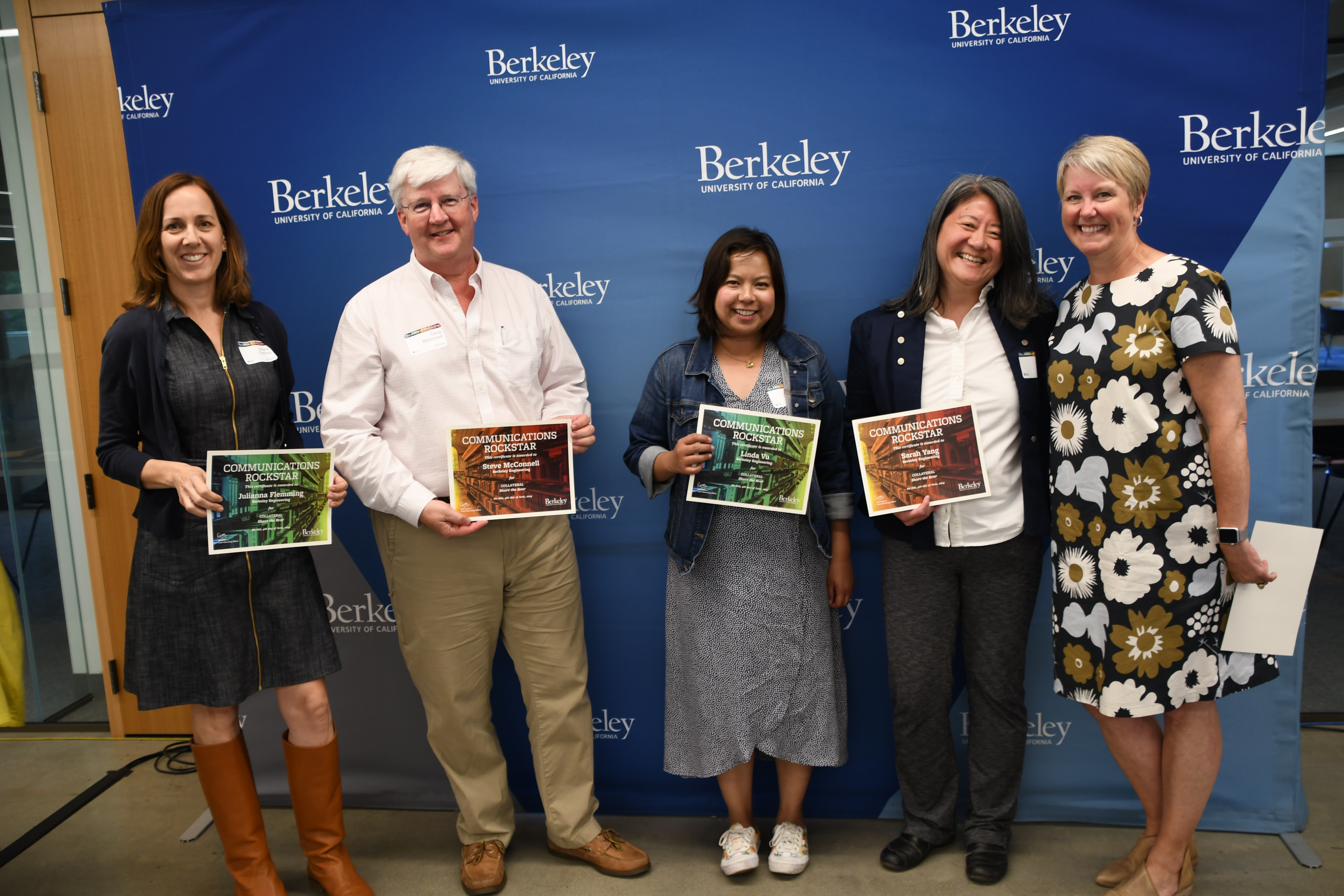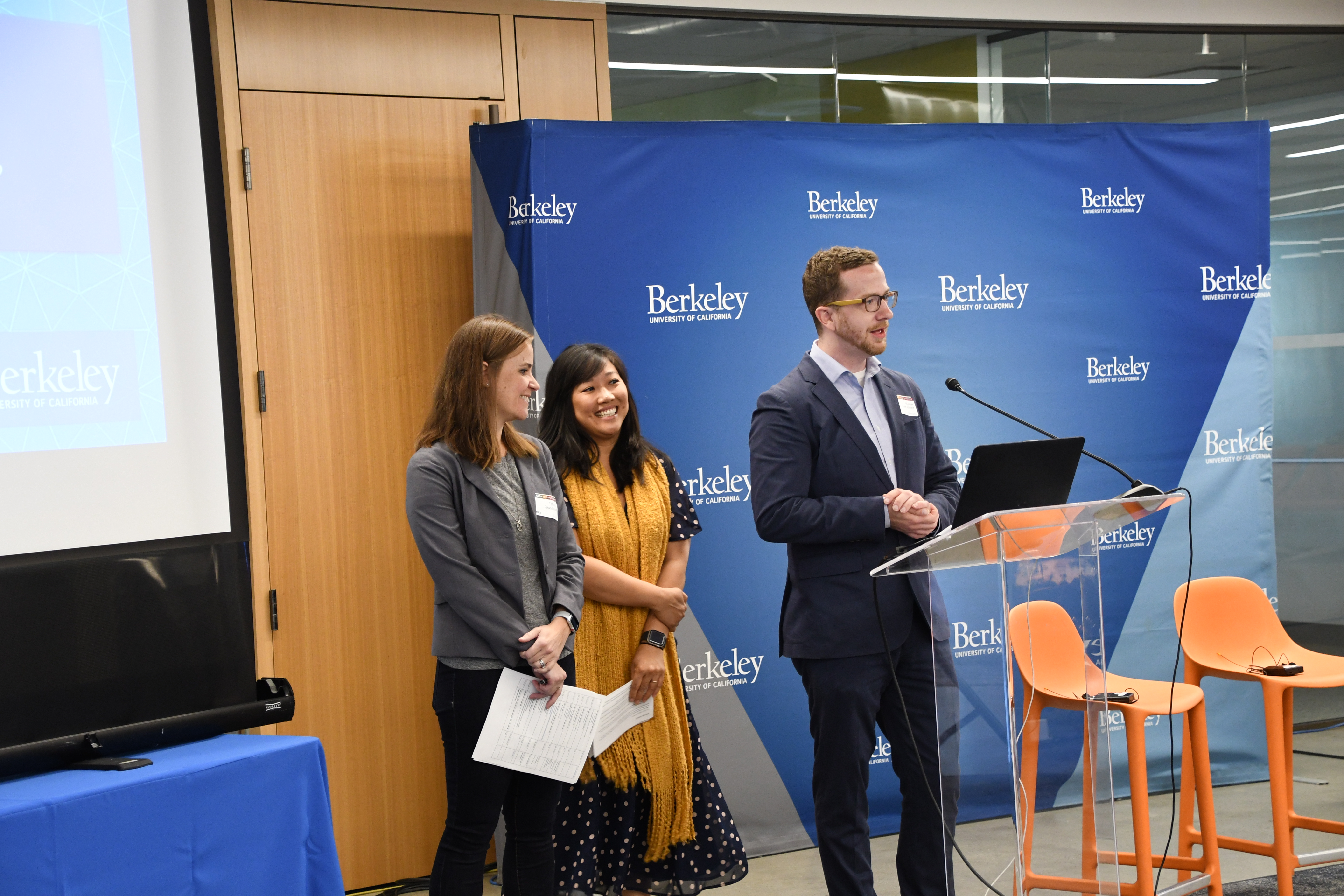Storyteller-in-chief Carol Christ on the importance of the Berkeley story
Chancellor Carol Christ was one of many featured speakers at the annual Berkeley Communications Conference (BC2)
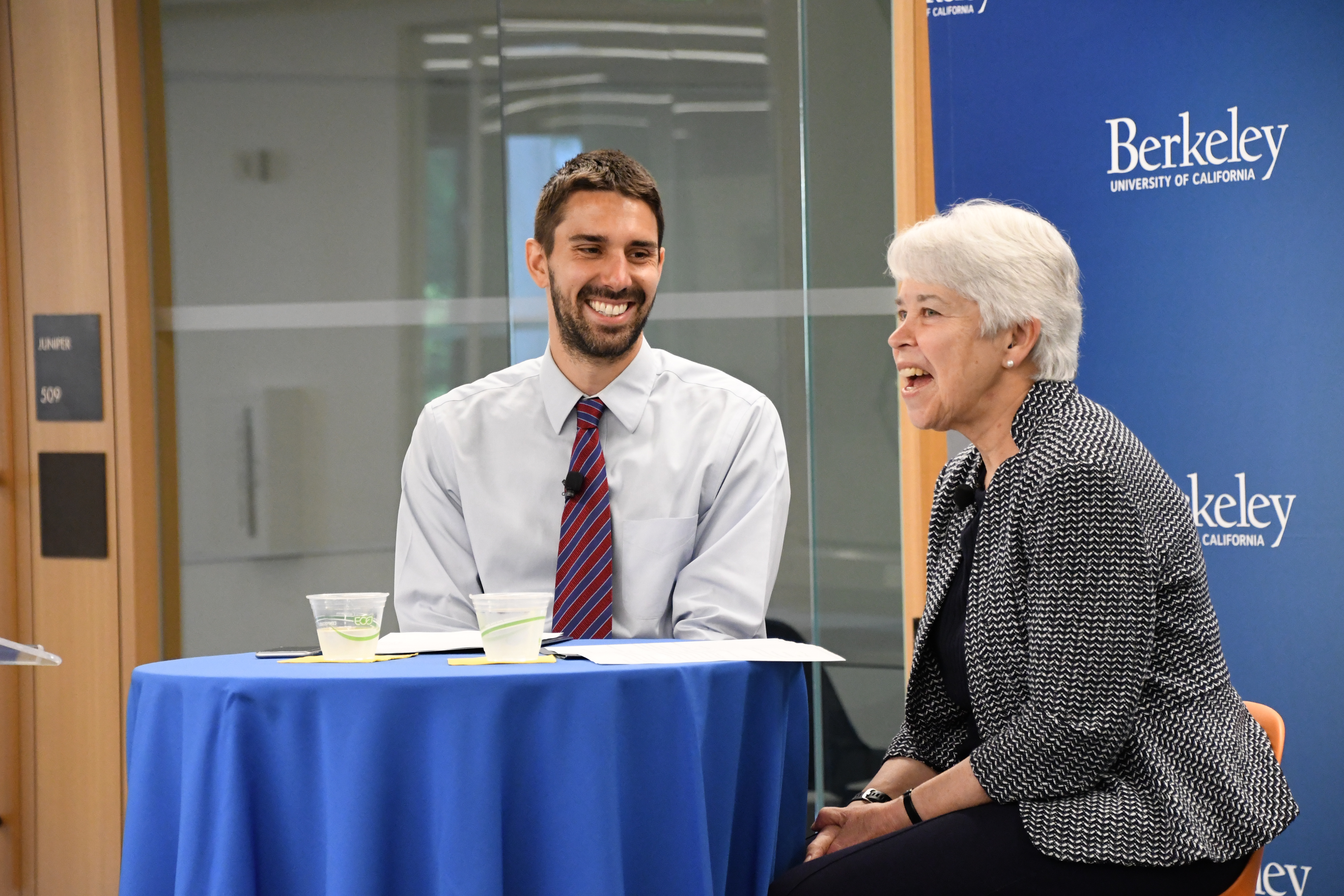
June 6, 2019
UC Berkeley’s self-described “storyteller-in-chief” took her role to heart this week, reminding an audience of campus communicators that, “We are a story-telling species, and we are always writing history in the strands of the present.”
Chancellor Carol Christ was one of several speakers at the annual Berkeley Communicators Conference, a daylong event dedicated to professional development, honoring standout staff and networking. The conference — affectionately known as BC2 — covered topics ranging from “Bringing Stories to Life Digitally” to “Finding Novel Ways to Tell Your Story” to “The Story of Berkeley,” which is where Christ shared her wisdom with the 213 attendees.
Christ, a scholar of Victorian literature, dipped into her past, saying the author Henry James once called Victorian novels “large, loose, baggy monsters” that are complex in character and plot.
“Berkeley is a big, baggy monster, in a way,” Christ said, because it’s made up of many constituencies with their own pursuits and points of view. “There is so much going on, so much that connects us to our history and to our future.”
If there was any question about whether there is more than one way to look at Berkeley, it was answered by Michelle “Mush” Lee, a Berkeley alumna and the founder and CEO of Whole Story Group, which helps organizations identify their core stories.
In her presentation, “What’s Your Story, and Why Does It Matter?,” Lee, a poet by trade, said Berkeley is best described in what she calls a hip-hop cypher, an informal, freestyle jam session. Much of her work is done in hip-hop, and like in hip-hop, the best communication comes down to listening and sharing, she said.
“It’s safe to say that, in 2019, we might be in an era of revelation,” Lee said. “By this, I mean the ways in which we have connected and understood and related to each other are being revealed to not work any longer. In a moment where we seem the most disconnected, stories of human connection and wholeness and tiny moments of intimacy keep popping up everywhere.
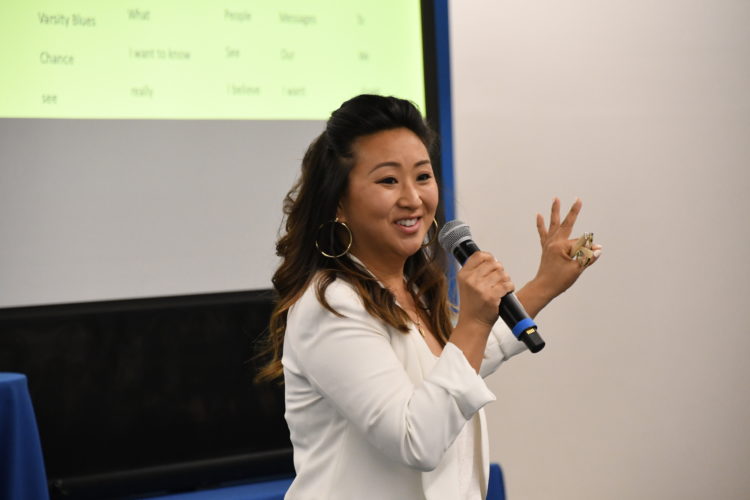
Michelle “Mush” Lee, Founder and CEO for Whole Story stressed that “every story matters” at 2019 BC2 Conference (UC Berkeley photo by Melani King)
“Every story matters, if for no other reason than that language is a site of revelation. We need to spend some time thinking about how we pursue stories. How do we pursue stories that are keenly suited to the sacred task of threading information, inspiration and invocation into the garment of collective understanding?”
In his talk, “Finding Novel Ways to Tell Your Story,” Patrick Joseph, editor-in-chief at California Magazine, said, “All roads lead to Berkeley.”
Joseph said it was up to the writers in the room to find the Berkeley connections, because the connections are there — if the writer digs deeply.
“Writing is like cooking,” he said. “What you write depends on the ingredients you have. Writing about Berkeley, it’s like a version of Iron Chef.”
Angus MacDonald, the UC system’s senior counsel on intellectual property,
cautioned against making assumptions about the usage of various images, videos and music that communicators embed in their stories. Why? Because much of what writers and editors believe about copyright law is not true. And mistakes could be costly.
When dealing with photos, he said, “There is a lot of free stuff out there,” but some of it is under copyright, and some isn’t. “There are a lot of myths about copyright and content,” he added, and writers need to keep abreast of what is and isn’t copyrighted material.
There are also myths involving the written word and science in the era of so-called “Fake News.”
The chancellor said the job of communicating about universities has become more difficult in the age of President Donald Trump. Universities are called elitist and are, she said, “whipping boys” for much of the current American power structure.
“We have a counternarrative that’s been well told,” Christ said. “But just being out there is not enough. The story has to be pretty simple for people to grasp it.
“My job is not chancellor; my job is storyteller-in-chief.”
The annual conference is organized by the UC Berkeley Office of Communications and Public Affairs.
